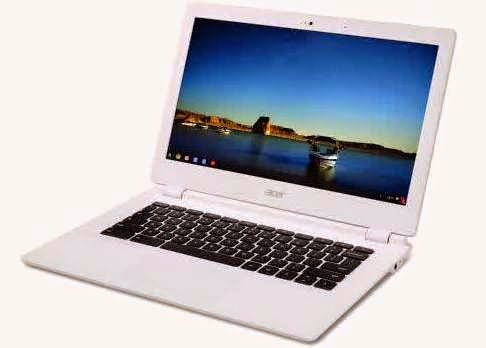The Chrombook has interesting history, ranging from devices that are always connected with all the data stored in the cloud and slowly but surely turned into a platform that can serve as a substitute for a full laptops. That does not mean that everything that you might want to do on a modern laptops is posible, but if he could do 95% of most of the users who need it can be very good, and there are clear benefits to chrome OS as Well. Perhaps the strongest point that support Chrome OS is that it is a closed ecosystem. Unless you eanble the developer, you are effetivelly locked to the collection curated apps, all available through the chrome web store. That being the case, viruses and other malware that is pretty much a non-issue, at least in my experience, which eliminates headaches great potential support for user and administrators.


Chromebook is basically a purpose built for this type of use. And there are other great benefits as well, such as the generally improved battry life relative to the well-equipped laptop Windows, more responsive user interface given hardware resources are limited, and the cost alone. That last point is a little less than a clear victory over the laptops windows, Windows 8.1 with Bing has been able to effectively according to the Chromebook price point.
Acer Chromebook 13 compared to the other option is the use of NVIDIA Tegra SoC K1. This is a pretty powerful SoC in the tablet world, with NVIDIA SHIELD still put near the top of most graphics benchmark. But when we turn to the world of laptops and Chromebooks, TK1 has a very different set of competitors. Intel chips Bay Trail around, sure, but along with some ARM-based SoCs also rather interesting one competitor: Intel Haswell-based Celeron 2955U. It was actually the chips used in the Acer Chromebook, C720 variants, and while it was lowest end Intel's Haswell chip making, as we shall see later can still pack a punch.
Simply put, the performance is not the only important element with the Chromebook. Battery life is certainly another factor, and while not necessarily 2955U power hungry chips, TK1 definitely wins in the use of pure power and thermal. That means two things, better battery life, and perhaps more important is that the Chromebook 13 completely fanless. The cost factor is another possibility, and while the C720 sold well, has now been replaced by the updated 11.6 "Chromebook with Intel Celeron N2830 / N2840 Bay Trail SoC.
There are several variants of the Chromebook 13. The lowest end model comes with 2GB of RAM and a 1366x768 resolution LCD, there is a model with the same LCD but 4GB RAM but too expensive. We are reviewing the option costs, more and upgraded LCD display to 1920x1080 while staying with 2GB of RAM, or if you want to upgrade both the LCD and 4GB RAM upgrade plus 32GB of storage, the price ended up being. We accept the version used to be the most sensible option.
We will also neglect at this stage does not show the updates that have been made for Acer Chromebook line in the last month. Acer has now announced Chromebook 15 with the C740 and C910 models of education. All of them have the new Intel Broadwell-U, so they should be faster than the C720, and Chromebook 15 is available with 1080p IPS screen. Via : anandtech.com
 Wlaptops
Wlaptops